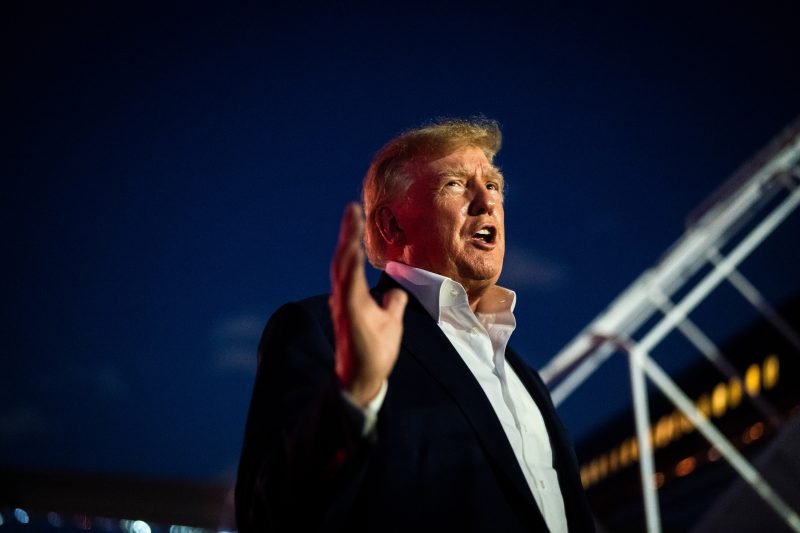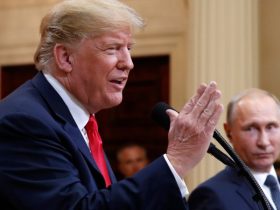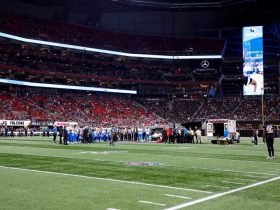Donald Trump’s team has launched a nationwide campaign to buttress his chances of getting sympathetic delegates at next year’s nominating convention and identify opportunities to shape party rules that could help his campaign, according to people familiar with the plans.
The behind-the-scenes effort comes at a time when most Trump rivals have not even launched campaigns and focuses on the most esoteric part of the Republican nominating process — the state rules and party leaders that actually select presidential nominating delegates.
His team has invited state party officials to Mar-a-Lago, arranged private meet-and-greets between state leaders and Trump as he travels, endorsed state officials they believe will be supportive of him and met with senior Republican Party officials in Washington to discuss how the delegate selection process will unfold, according to the people directly familiar with the efforts, who like many for this story spoke on the condition of anonymity to discuss private conversations.
Trump advisers say the outreach is less about demanding changes now and more about cultivating relationships for the upcoming months — when they could call for some rule changes in states and try to shape who the delegates are for the convention. It also shows that while they are projecting political strength, there is a realization that they will likely face a long and difficult nomination fight and potentially a messy convention, some Trump advisers say.
“The Trump campaign has a political operation that is second to none, and will leverage its considerable experience to ensure complete and total victory in 2024,” Trump campaign spokesman Steven Cheung said Friday.
Trump, the onetime outsider who patched together his successful 2016 campaign on the fly, has now built a team more adept at playing the inside game. Strategists for multiple rival political operations, who have not yet formally declared their candidacies, say they are concerned that Trump’s early blocking and tackling could pay major dividends next year and leave them racing to catch up.
Unlike the Democratic Party, which largely dictates how delegates are selected at the national level, state Republican parties have broad leeway to determine who they send to the convention and how those people are bound to vote on the first ballot. GOP state parties have until Oct. 1 to submit their delegate selection plans for 2024.
“You can influence the way delegates are selected, whether it’s by primary, caucus or convention,” said Henry Barbour, a longtime Republican committeeman from Mississippi. “You can affect whether a state party will have winner-take-all or what the criteria that a candidate has to get to win any delegates. There are just advantages to being the most organized campaign.”
During the 2016 campaign, Trump found his candidacy rocked by tactical losses in states like Colorado and Louisiana, where the campaign of Sen. Ted Cruz (R-Tex.) outmaneuvered Trump in party meetings, winning a greater share of the convention delegates than his popular support in the state. Trump’s outrage over the defeats led, in part, to his decision to fire his campaign manager and hire Paul Manafort, a Republican consultant with extensive delegate management experience.
“We are running a campaign for the Republican nomination that wasn’t run in 2016,” a Trump adviser said. “There are a lot more than rallies involved in a real campaign.”
For his 2020 reelection campaign, Trump advisers Justin Clark and Bill Stepien worked for more than a year to change party rules to ensure he would not face a challenger at the nominating convention. In Massachusetts, for example, the Trump campaign changed the delegate selection plan to winner-take-all based on the primary result to prevent moderate Gov. Bill Weld (R) from being able to seat potential allies at the convention.
In recent weeks, Trump’s staff has taken a similarly aggressive posture, aiming to introduce themselves to the leaders of all the state and territory Republican parties that will be seated at the convention in Milwaukee on July 15, 2024.
Those working on the effort include Trump’s top lieutenants: Susie Wiles, Chris LaCivita and Brian Jack, along with Clayton Henson. In 2016, Wiles worked on the rules committee of the convention, while LaCivita was hired to work for the national party to prepare for a contested convention and Jack worked as delegate director for Trump’s campaign.
Some of the meetings came at a Republican National Committee meeting last month in California, where Wiles, LaCivita and Henson all trekked to meet with state Republican Party officials. Trump advisers have met with officials in almost all 50 states, people familiar with the matter said.
Senior Trump advisers in Washington last week met with RNC officials and others about the effort, people familiar with the matter said, and they have visited some individual states. Trump also sent a delegation to Michigan last week to support the state party chair campaign of Matthew DePerno, who lost.
“They reached out. There have been talks,” said Carson Jorgensen, the chair of the Utah party, about the Trump effort. He said the delegates that his state sends to the national convention will be determined in the state’s primary and then selected at a private meeting of party activists.
“At the [state] convention, we will nominate our delegates, no doubt, but they are bound by how the primary vote comes in,” he said.
Even in states where the delegate allocation process is set, the Trump team believes these early interactions will help ensure that the delegates, including party officers, at the convention are supportive. Though primaries and caucuses often bind delegate nomination votes on the first ballot, delegates are free to vote their will on other matters before the convention, including the rules for the proceedings and who gets credentials to vote. They also have the power to disrupt proceedings.
Trump campaign officials have compiled the rules of most every state Republican Party and have begun analyzing them to look for potential advantages, changes and pitfalls, people familiar with the effort say.
In Michigan, Democrats have announced a plan to reschedule the state’s primary for February 2024, outside the window allowed by national Republican rules, raising the likelihood that some of the state’s Republican delegates could be stripped of credentials if they are allocated through a statewide vote. Trump advisers, during a visit to the state this month, pushed local leaders to consider rule changes for next year that would allow the state to select delegates later in the year through a caucus or convention to preserve the state’s full delegation at the national convention, according to multiple people familiar with the conversations.
In Idaho, Trump’s allies, who the campaign says are not working at their direction, have been looking to preserve his advantage there by exerting greater influence over members of the central committee, who will discuss delegate selection rules this summer, according to a party operative with direct knowledge of the discussions. Some of the former president’s allies in the state have pressured members who are perceived as disloyal to Trump to resign and have challenged the legitimacy of at least one committee member’s state residency in an effort to place a Trump loyalist in that slot before the national convention next year.
A Trump campaign adviser said the former president’s campaign was not involved in the Idaho fights.
The state party is deeply divided among Trump loyalists, libertarians and those allied with more establishment Republican figures like Republican Gov. Brad Little, who was unsuccessfully challenged from the far right in 2022 by the Trump-endorsed former Lt. Gov. Janice McGeachin. State party chairwoman Dorothy Moon, who echoed Trump’s bogus claims about election fraud after the 2020 presidential contest and is viewed as sympathetic to his candidacy, did not return calls for comment.
While some in the GOP would like to see an open primary in Idaho to give other Republican White House contenders greater opportunities to compete, members supportive of Trump’s effort are focused on ensuring that Idaho’s primary remains closed to any voters other than Republicans — a rule that favors Trump, the people said.
There is also controversy brewing within the grass roots over one Idaho lawmaker’s proposal to move the state’s presidential primary from March back to May to align with state’s other primary elections. The date had been moved earlier in the presidential calendar in 2012 to encourage more candidates to visit and compete in the state.
Strategists for two rival presidential contenders said they were concerned that the Trump team would push to shrink the universe of people involved in delegate selection by moving away from primaries and toward caucus or conventions.
“The man is running for president again, wouldn’t you expect that he would be having dealings with state party officials?” said Morton Blackwell, an RNC member from Virginia who added he has not personally been lobbied. In contrast to Trump’s neglect of a delegate strategy in 2016, Blackwell said, “It’s a different political situation. Trump is not an outsider now.”
Isaac Arnsdorf contributed to this report.








